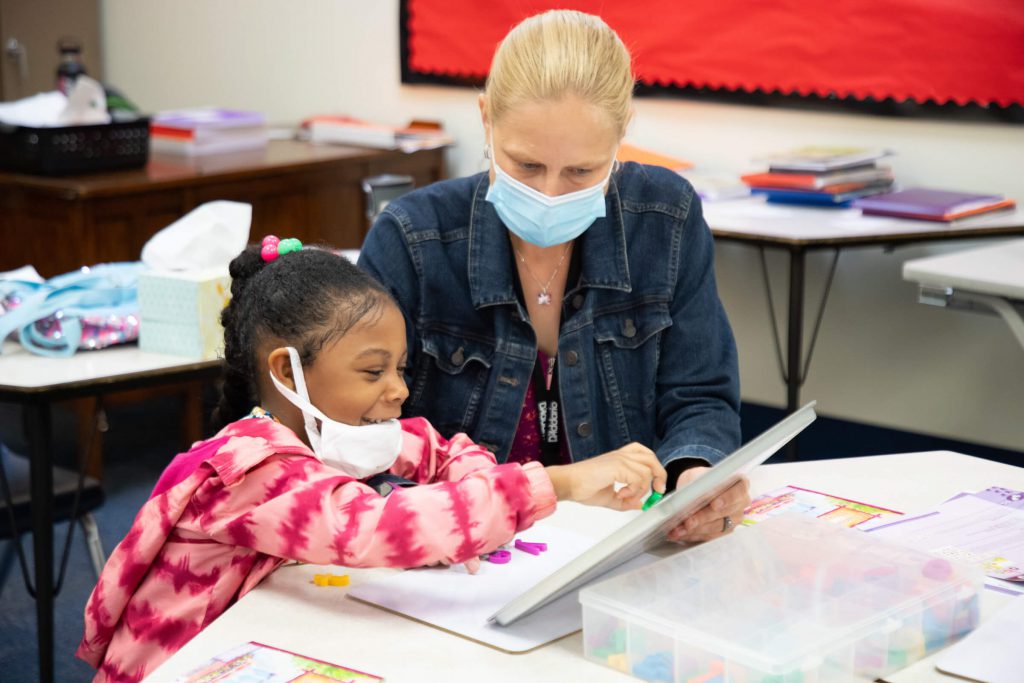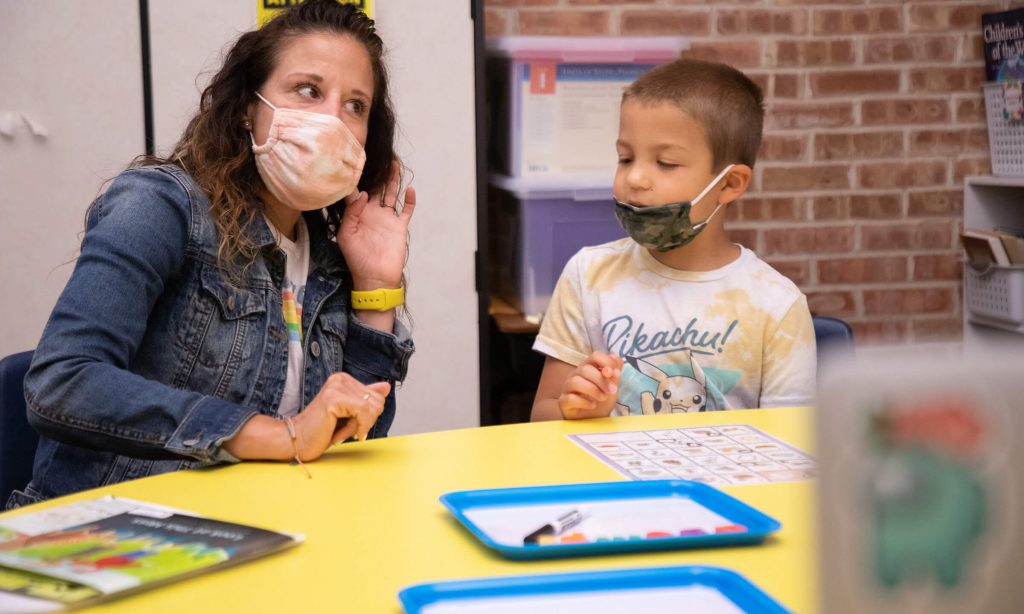
Concordia University Wisconsin and Glendale-River Hills School District have launched the Literacy and Learning Center to support literacy acquisition among K-8 students within the district.
The research in support of early literacy development is overwhelming: early reading skills have been shown to influence future academic achievement, increase retention and graduation rates, and enhance overall productivity in adult life.
That’s why it is so concerning that reading fluency largely stopped in the spring of 2020, according to a March 2021 study conducted by Stanford University researchers. Nationwide, students currently enrolled in 2nd and 3rd grade are approximately 30 percent behind what would be expected in a typical year, the study shows. While scores did pick up in the fall—a testament to the work educators put in—the growth wasn’t robust enough to make up for the gaps from the spring.
The challenge has prompted Concordia University Wisconsin, in partnership with Glendale-River Hills School District, to launch the Literacy and Learning Center to reach K-8 scholars within the district and, eventually, beyond. Concordia is the first university in Wisconsin to operate a literacy center staffed by hired specialists directly within a school district.
“It’s all about access. The more accessible it is, the more successful it will be,” said Dr. Steven Witt, who directs Concordia’s graduate education program. “For that reason, we really liked the idea of having it directly in the school district and bringing our expertise to students and their families instead of expecting them to travel to us.”
RELATED: Concordia adjunct instructor La Tasha Fields is president of the Wisconsin State Reading Association
Why a Literacy and Learning Center

In short, literacy centers help students build reading and decoding skills through practice and repetition. Some teachers incorporate literacy centers during the school day, setting aside “stations” within the classroom for students to work on drills independently or with a partner while other classroom activities occur concurrently.
The Concordia/Glendale-River Hills model takes comprehensive approach by pairing students who are eligible with CUW students and district staff who have received specialized training. Literacy and Learning Center sessions are completed outside of the school day, but in cooperation with the traditional elementary school calendar to reduce scheduling conflicts and eliminate barriers for families.
How the CUW/Glendale-River Hills Center operates

Thanks to a generous grant from PNC Foundation and matched funding from Glendale River Hills, the Center is staffed by a director, Jennica Westfahl, who previously completed Concordia’s nationally ranked Master of Science in Reading and Literacy program and who serves as Director of Teaching and Learning for the Glendale-River Hills School District. Westfahl works collaboratively with Center Coordinators Jennifer Deering and Amy Zunker, who are reading specialists within the district. CUW student literacy specialists are also paid stipends through the grant.
The CUW/Glendale-River Hills Literacy and Learning Center began over the summer in tandem with the district’s summer school program. In anticipation of the Center’s launch, several Glendale-River Hills teachers completed a week-long, three-credit Assessment in Literacy class, followed by a five-week summer tutor academy. Many are also currently pursuing their master’s degrees from Concordia.
The Literacy and Learning Center will continue to be staffed this winter by CUW School of Education undergraduate students and other licensed reading specialists. Several parent engagement activities, such as author presentations, parent conferences, and parent collaboration meetings, are planned for the spring.
“The Literacy and learning Center will be a game changer for our school community,” says Westfahl. “The Center will focus on teaching, research, and service. We are thrilled to partner with Concordia to improve the quality of literacy instruction provided by teachers and the literacy acquisition of our scholars.”
Want in?
Concordia offers education programs at the undergraduate and graduate levels:
- Bachelor of Arts in Education – Elementary/Middle School
- Master of Science in Education with Literacy, Reading Teacher, or Reading Specialist Licensures
— This story is written by Kali Thiel. Kali was Director of University Communications until April, 2025.
If this story has inspired you, why not explore how you can help further Concordia's mission through giving.